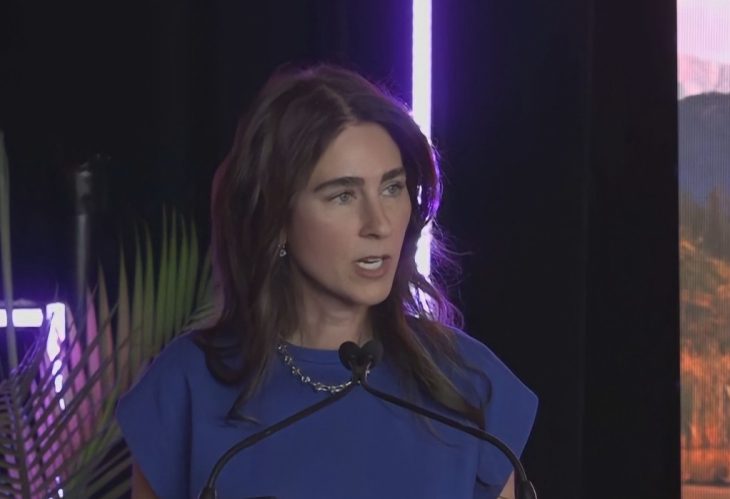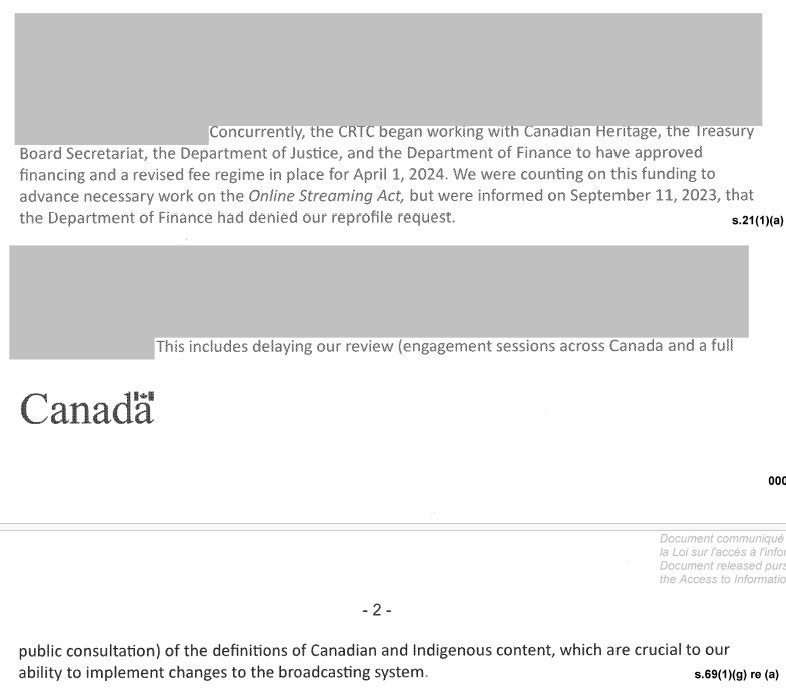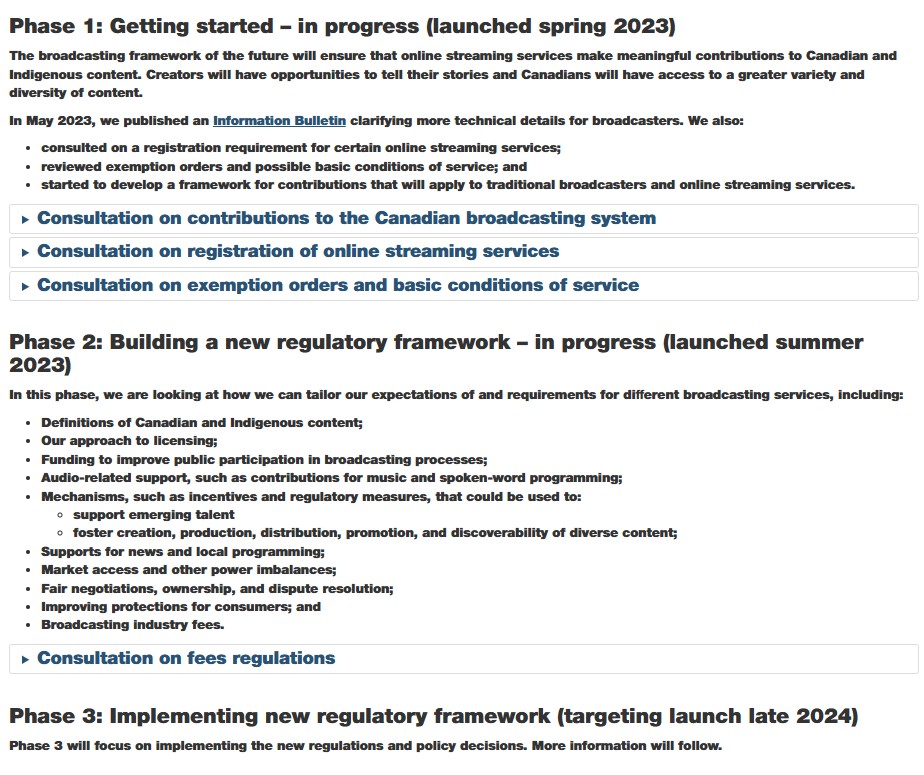
By Ahmad Hathout
Nearly five months after the Online Streaming Act became law, the CRTC warned about a delay in implementing the new rules after its request for funding was denied by the Department of Finance, according to a letter obtained by Cartt.
“The CRTC began working with Canadian Heritage, the Treasury Board Secretariat, the Department of Justice, and the Department of Finance to have approved financing and a revised fee regime in place for April 1, 2024,” CRTC Chair Vicky Eatrides wrote in the heavily redacted September 19, 2023 letter to then Canadian Heritage Minister Pascale St-Onge.
“We were counting on this funding to advance necessary work on the Online Streaming Act, but were informed on September 11, 2023, that the Department of Finance had denied our reprofile request.”
A reprofiling request involves the movement of unused money from one fiscal year to a subsequent year to “reflect changes in the expected timing of program implementation,” Finance says on its website. The department told Cartt it cannot discuss reprofiling requests because they are confidential.
The start of the next paragraph in the letter, the subject of which is a reprofiling request, is redacted, followed by: “This includes delaying our review (engagement sessions across Canada and a full public consultation) of the definitions of Canadian and Indigenous content, which are crucial to our ability to implement changes to the broadcasting system.”

Portion of September 2023 letter from Eatrides to St-Onge.
A Heritage spokesperson declined to comment on its response to the letter on the basis that reprofile requests are subject to “cabinet confidence.”
As requested by the government, the CRTC had initially set out to implement the 2023 law – which requires regulating and forcing contributions from online streamers – within two years through a series of consultations in what Eatrides called an “ambitious regulatory plan.”

January 2024 snapshot before revised timeline.
But in May 2024 — the month after the start of the CRTC’s fiscal year, which ushered in a new fee regime era to factor in online service contributions — the commission announced a revised timeline that pushed back the implementation by at least a year.
Critics were left wondering why.
“In 2023, the CRTC was able to work within our existing resources to implement the mandate given to us by Parliament,” a CRTC spokesperson told us in response to questions related to whether the revised timeline had anything to do with a funding gap. “Subsequently, temporary funding was approved in 2024-25 for additional resources to accelerate the implementation of the modernized Broadcasting Act.” The regulator was also extended $5.8 million in 2025-2026 to “expedite” that work, the spokesperson said.
Within two months of that legislation’s assent, the Online News Act – which requires the CRTC to backstop pay negotiations between news hosting platforms and news organizations – also became law, quickly increasing the commission’s workload. The commission established the mandatory bargaining framework for those rules late last year.
“The Government has recently given the CRTC significant new responsibilities, including to build the regulatory frameworks required to ensure the timely and effective implementation of Bill C-11 (Online Streaming Act) and Bill C-18 (Online News Act),” Eatrides prefaced in her letter to Heritage.
The Online Streaming Act became law in late April 2023. Since then, the CRTC has launched 15 public consultations and released seven decisions to implement it, including the big base contribution decision which requires online streamers contribute five per cent of their previous year’s Canadian revenue toward the system. That decision, which is expected to bring in an annual $200 million into the system, is being challenged in court.
The next hearing in the implementation of the act – defining Canadian content on audio services – begins Thursday.
Screenshot of CRTC Chair Vicky Eatrides, via CPAC



